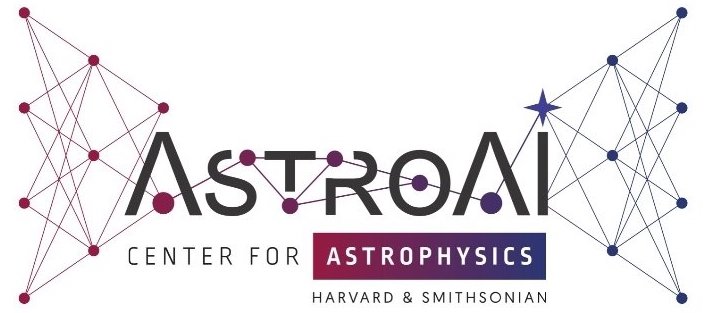AstroAI Lunch Talks - February 5, 2024 - Festa Bucinca & Belén Yu
05 Feb 2024 - Joshua Wing
The video can be found here: https://www.youtube.com/watch?v=buZ4L4CKE-M
Speaker 1: Festa Bucinca, CUNY
Talk Title: Can we discover physical models using Machine Learning? A case study of galaxy sizes
Abstract: In the era of big data available from numerical simulations and observations, Machine Learning (ML) algorithms are well equipped to identify complex relationships such as those in galaxy formation. In this work, we propose a workflow that uses ML to understand the relationship between features and target, and further, to understand the underlying physics of the system by searching for an analytical equation that best describes this relationship. We apply this pipeline to address the long-lasting puzzle of galaxy sizes in galaxy formation theory, which argues that the sizes of disk galaxies are the result of their parent halo’s angular momentum conservation. First, we check that the problem is well posed by verifying that ML models are able to predict galaxy sizes, given all the input features at our disposal. Then, we extract the minimum number of variables that contribute to the prediction of galaxy sizes using a feature ranking analysis. Finally, we use this basis set of features to search for the physical model using Symbolic Regression – an analytical equation that best describes the relationship between input and output. As a check for the viability of our pipeline, we use data from a semi-analytical model where the data-driven derived physical model can be compared to the ground truth.
Speaker 2: Belén Yu, EPFL (Student Researcher at Caltech / IPAC)
Title: Convolutional Neural Networks for Asteroid Detection in Wide-Field Surveys
Abstract: The Zwicky Transient Facility, with its extremely large field of view (47 square degrees), has been used to discover more than 200 near-Earth asteroids and comets. This seminar explores new methods to improve the current pipeline and enhance the recovery rate. In particular, it delves into the application of a convolutional neural network trained on images of both past detections and simulated asteroid data. The expectation is that the developed tools will also be applicable to Euclid, VST and a range of other satellite and ground-based surveys, setting the stage for fast and automated asteroid detection in the upcoming generation of telescopes.
Watch the talks below!
